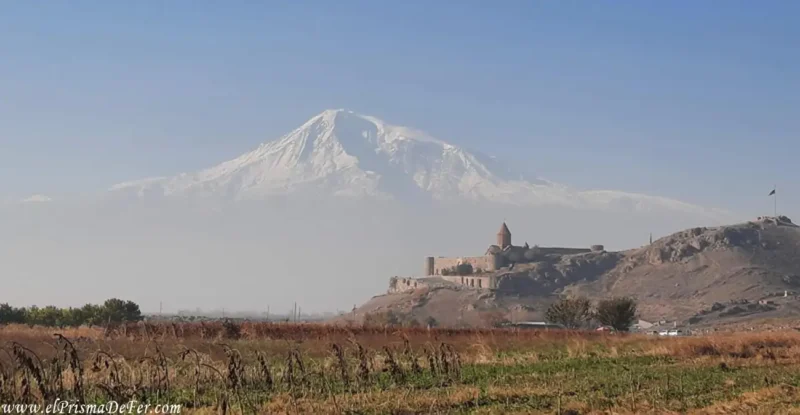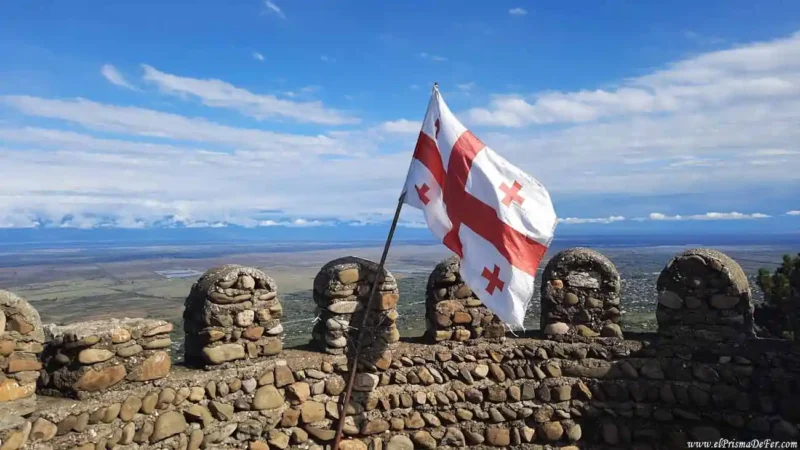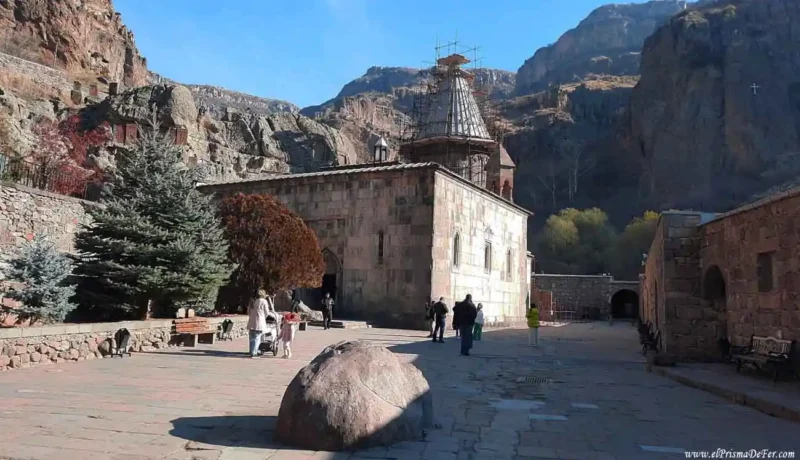Yerevan was a pleasant surprise on my trip through the Caucasus. I had read that the capital of Armenia isn't always high on the list of priorities for travelers to the area, but as soon as I visited it, I realized it deserves much more recognition.
It's a comfortable city to walk around, with a calm pace and, above all, with a colossal beast like Mount Ararat, which dominates the horizon from any point in the city.
The interesting thing about Yerevan is that it functions as a kind of bridge: on the one hand, it preserves traditions and a strong historical memory, and on the other, it has a very distinct modern life, with crowded squares, street art, and markets. It's also the ideal base for organizing excursions to different parts of the country.
In this post, I share with you how I experienced my visit and what I found most useful so you can enjoy it too.
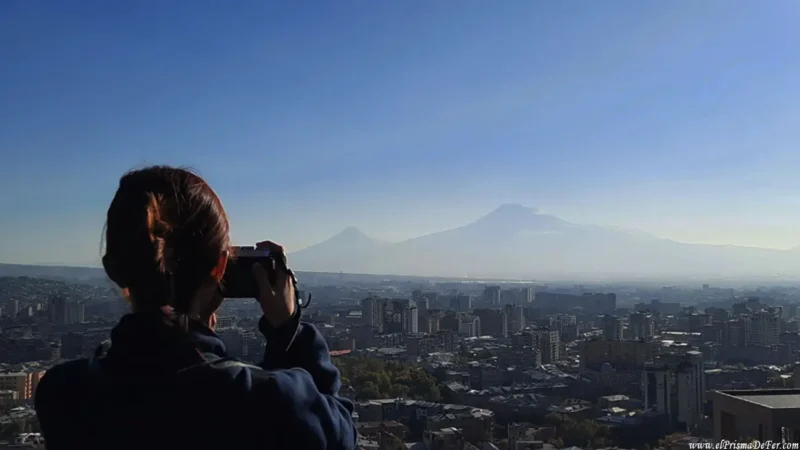

Table of Contents
The Pink City and its architecture
Yerevan is known as the pink city because of the distinctive color of many of its buildings. This is due to the volcanic rock that abounds in the region, called pink tuff, which has been used for centuries as a building material.
Depending on the daylight, the buildings can appear in shades ranging from pale pink to deep orange, giving the capital a unique and very photogenic appearance.
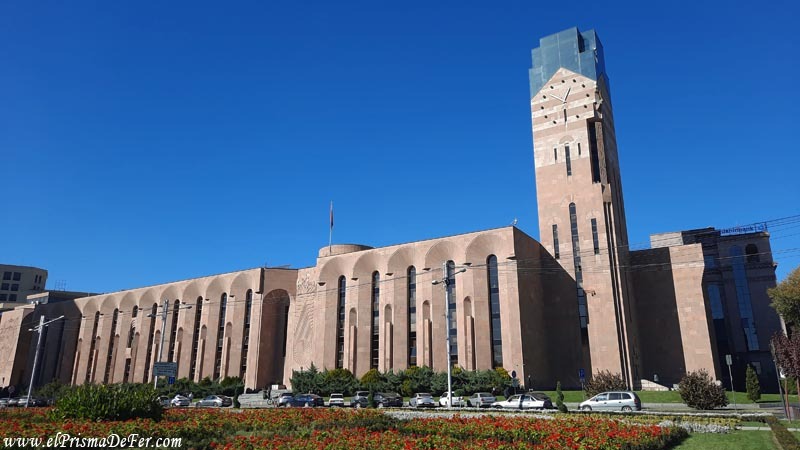
The city's architecture combines different stages of its history. On the one hand, there are traditional stone buildings, a legacy of the medieval period and Persian influence.
Then, in the 20th century, during Soviet rule, Yerevan was transformed with grand avenues, monumental squares, and socialist-style buildings, many of them also clad in volcanic tuff. This blend of classical and Soviet architecture defines much of the current urban landscape.
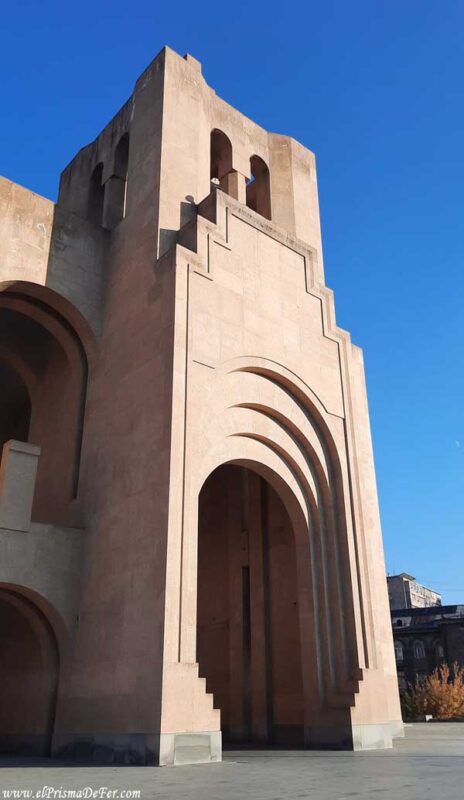
In recent years, the city has also added modern glass and steel buildings, especially in the Northern Boulevard area, creating an interesting contrast with the older architecture.
Iconic buildings of Yerevan
Republic Square is surrounded by government and cultural buildings built from pink and white tuff, making it a perfect example of Soviet architecture adapted to the Armenian style. At night, the central fountain comes alive with light shows and music.
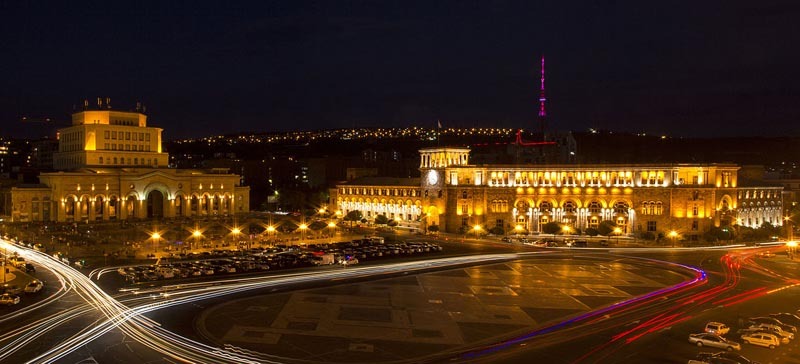
Another notable building is the Armenian Opera and Ballet Theatre, located on Freedom Square. Its semicircular, monumental design makes it unmistakable, and it's one of the most beloved places among locals, not only for its cultural function but also because it's always bustling with life, cafes, and street performers.
Other examples include the Yerevan State University, also built with pink stone, and the Sasuntsi David Railway Station, whose tower with a golden spire has become a symbol of the city.
Mount Ararat
Mount Ararat is the iconic symbol of Armenia, visible from almost all of Yerevan. Although it is currently located in Turkish territory, its volcanic silhouette, with its snow-capped peak for most of the year, dominates the skyline and accompanies the city's daily life, a reminder of the country's history and identity.
During my stay, each day at sunrise or sunset, Ararat offered different and spectacular views, from warm tones to intense colors against the snow.
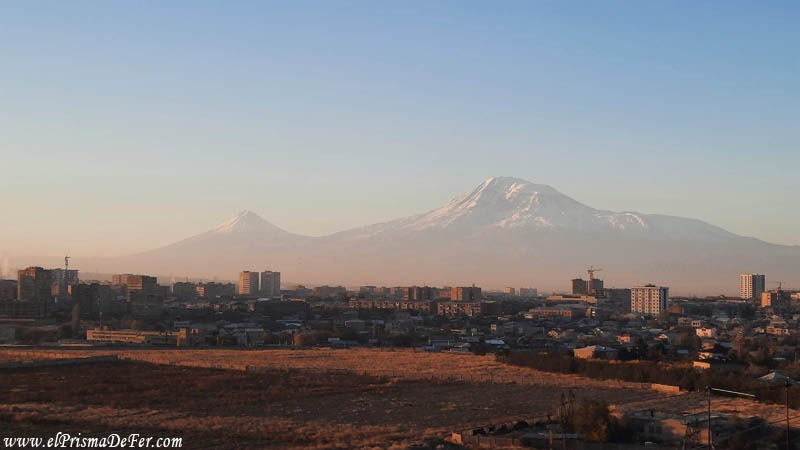
Interesting viewpoints to see Mount Ararat
There are several points in Yerevan from where you can get incredible views of the mountain:
- Mother of Armenia Park: In addition to the statue, the park offers panoramic views of the entire city with Ararat in the background.
- Tsitsernakaberd Hill: The Genocide memorial is not only a historical site, but also an excellent viewpoint over the city and the volcano.
- Cascade Bridge: from the upper terrace of the Cascade you get a very complete view of Yerevan with Ararat in the background, ideal for photographs.
- Memorial for the 50th Anniversary of the Revolution: After passing the waterfall complex, continue climbing first along a street and then some metal stairs. You must reach the monument, which, although the area is not very attractive, also offers beautiful views of the city and the mountain.
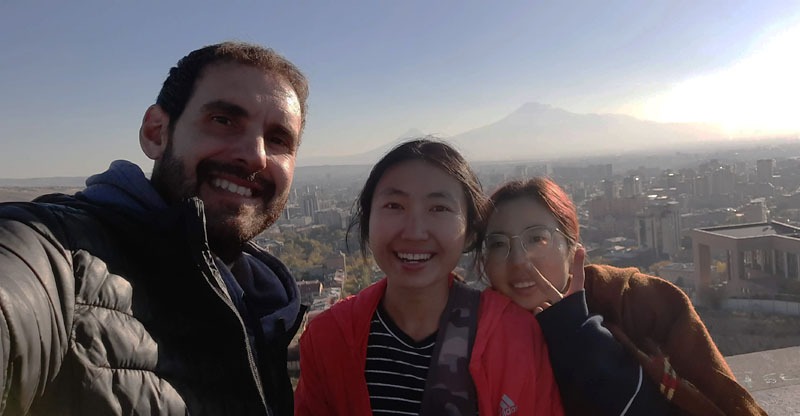
How to get to Yerevan
Getting to Yerevan is easy, whether you're coming from elsewhere in Armenia or from neighboring countries like Georgia or Iran.
From Tbilisi
From the Georgian capital, the most common and cheapest way is to take a mashrutka, those shared minivans so typical of the Caucasus. The journey usually takes between 5 and 6 hours, depending on border controls, and costs considerably less than a train or a private car.
Marshrutkas depart several times a day from near Avlabari Station in Tbilisi and drop you off directly at Kilikia, Yerevan's central bus station, making it convenient for continuing your journey within the city.
There's also a minivan company, Taxi Fayton, that makes several trips a day for a more affordable price. They depart from the area near the Palace of Justice in Tbilisi and drop you off near the DoubleTree by Hilton Yerevan City Centre, which is super convenient if you want to go directly to your accommodation. However, you'll need to book via WhatsApp first and coordinate a time to travel.

By Train
Another option from Georgia is the Tbilisi–Yerevan night train, a slower but scenic journey, ideal if you want to save a night's accommodation and live a different experience.
By plane
If you're coming from further afield, Zvartnots International Airport connects Yerevan to several European and Middle Eastern cities, making it the most common gateway for those arriving from outside the region.

Map with the main attractions to see in Yerevan
What to do in Yerevan
Republic Square
The heart of the city is undoubtedly Republic Square. Surrounded by imposing buildings made of pink volcanic stone, it's a place that blends history and everyday life.
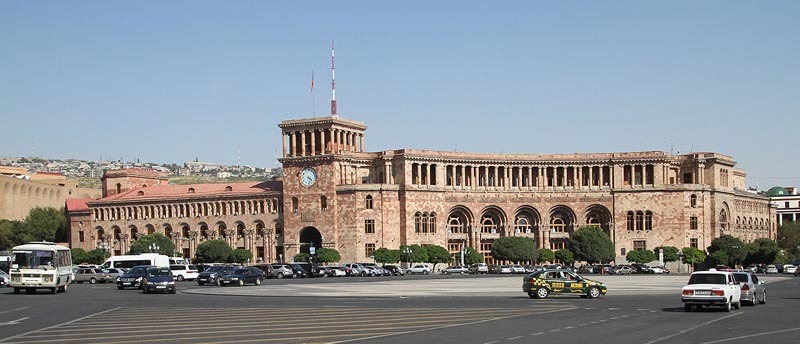
During the day, the square buzzes with the bustle of locals and tourists, and at night it fills with lights and becomes a must-see meeting point.
In the afternoon/evening, dancing fountains offer a spectacle of water, lights, and music, very popular with both city residents and visitors.
The Waterfall (Cafesjian Center for the Arts)
The Cascade is one of Yerevan's most iconic buildings: an immense stone staircase that connects the lower part of the city with the upper part.
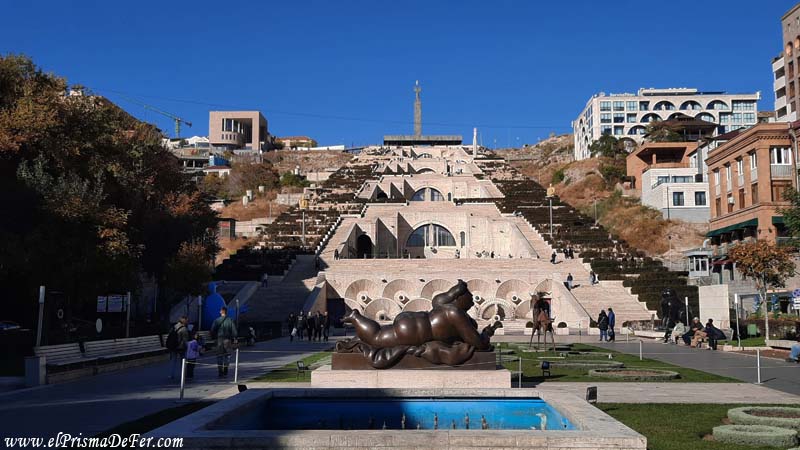
It's worth the climb, either by stairs or elevator, as the views of the city, with Mount Ararat in the background on clear days, are spectacular.
As you ascend, you'll encounter sculptures, gardens, and outdoor exhibits. Additionally, the Cafesjian Center for the Arts, a contemporary art museum, is located within the Cascade.
Opera House and Liberty Park
The Yerevan Opera House area is one of the city's most elegant spots. The Soviet-style building is surrounded by Freedom Park, a pleasant green space for resting or simply observing the daily hustle and bustle.
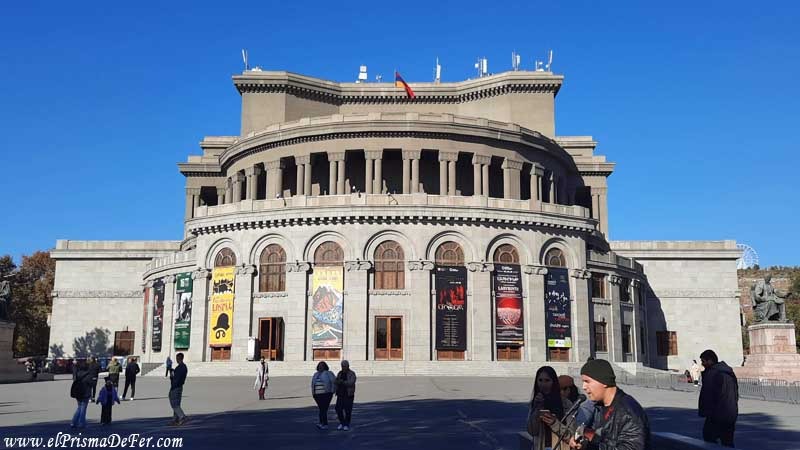
The surrounding area is full of cafes, restaurants, and bars, making it a great place to go out at night. It's an area that blends culture, nightlife, and a more modern atmosphere, ideal for spending a few hours.
Vernissage Market
If you're interested in taking home a souvenir from Armenia, the Vernissage Market is the place to go. It's a large open-air market where you can find handicrafts, textiles, paintings, antiques, amber jewelry, and even Soviet collectibles.
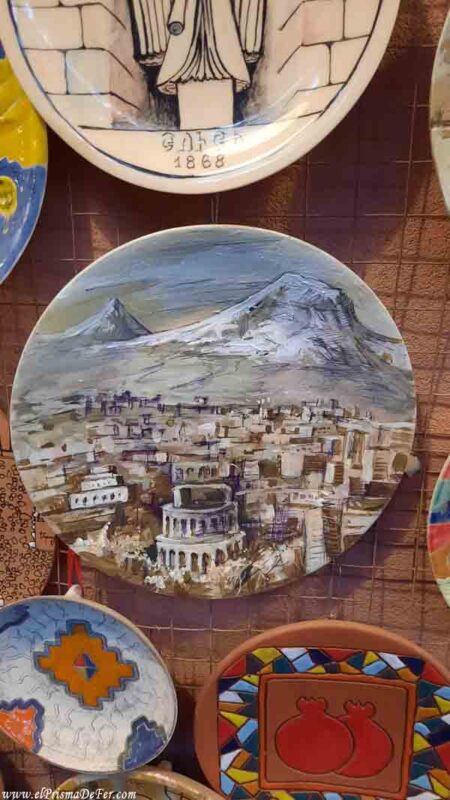
Strolling through its stalls is an experience in itself: many vendors tell you the stories behind their products, and there's always room to bargain. It's a great place to learn more about Armenian artistic and cultural tradition.
Armenian Genocide Museum
The Armenian Genocide Museum, located on Tsitsernakaberd Hill, is one of the most moving and must see places in Yerevan.
Its route is designed chronologically, from the background to the consequences of the genocide perpetrated by the Ottoman Empire in 1915.
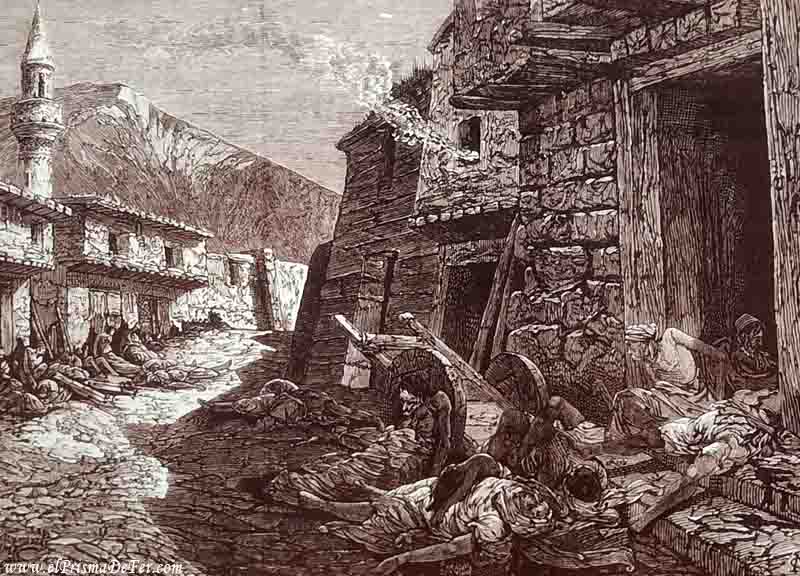
The rooms are filled with documents, photographs, testimonies, and objects that detail the suffering of the Armenian people.
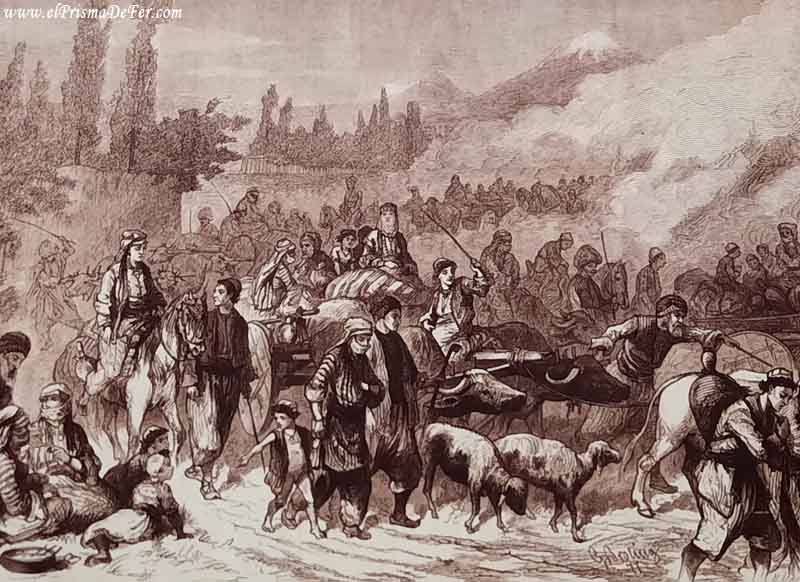
It may be a tough read, but it's essential to understanding the country's collective memory and why this topic is so important to national identity.


There's a lot to read and learn, so it's worth visiting ahead of time if you really want to absorb everything on display.
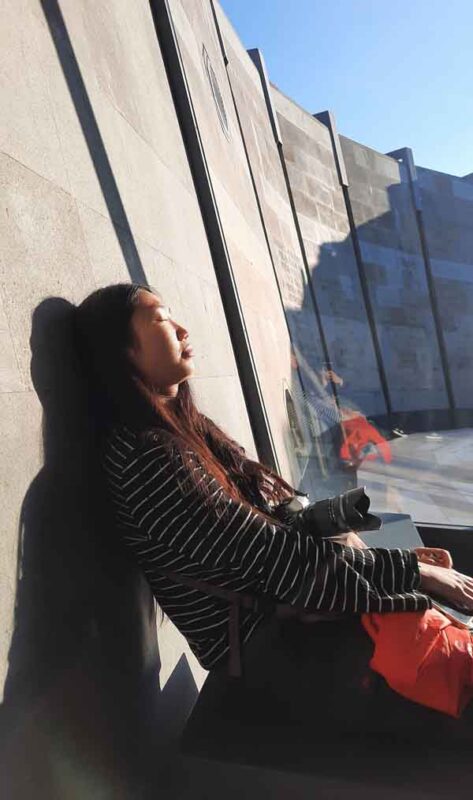
Armenian Genocide Memorial
Next to the museum is the Armenian Genocide Memorial, a space that invites silence and reflection. In the center stands the eternal flame, surrounded by twelve inclined slabs that symbolize the lost Armenian provinces.
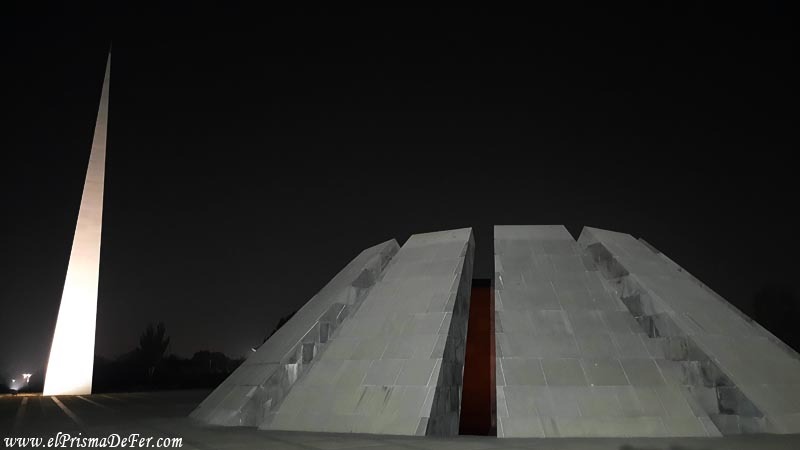
This place has become a meeting point to pay tribute to the victims and reaffirm the historical memory of the Armenian people.
The memorial also offers beautiful views of the city and Mount Ararat on clear days.
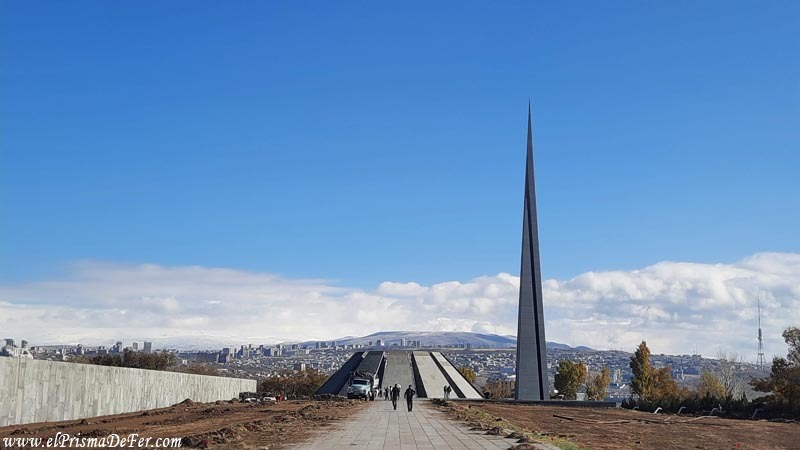
History Museum of Armenia
The History Museum of Armenia is located on Republic Square, in a striking architectural building. Its interior houses one of the most comprehensive collections in the country, with pieces spanning from prehistory to the modern era.
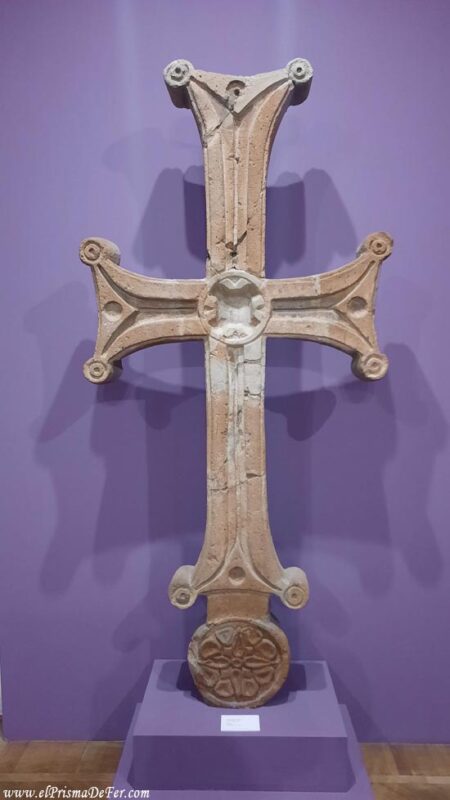
Its treasures include artifacts from the Kingdom of Urartu, medieval manuscripts, traditional clothing, and relics of everyday life from various periods. It is a comprehensive and well-organized museum, ideal for those who want to delve deeper into Armenian history before or after touring other parts of the country.
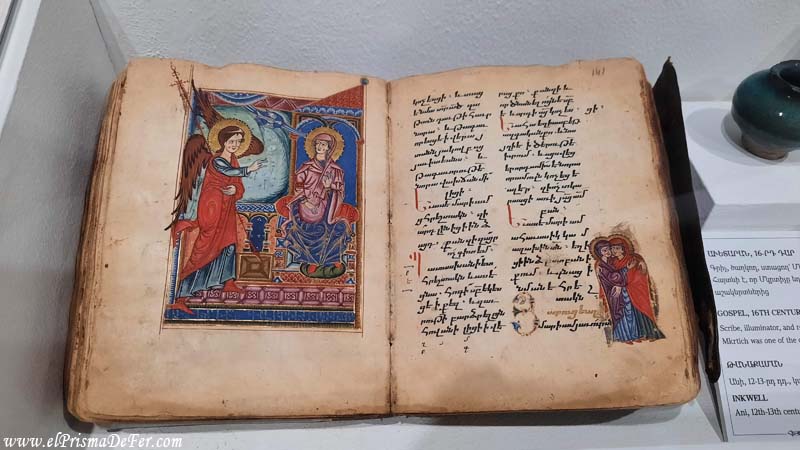
Not to be confused with the Yerevan History Museum, which is much larger and more nationally relevant.
Cathedral of Saint Gregory the Illuminator
The Cathedral of Saint Gregory the Illuminator is one of the most important and modern temples in Yerevan, inaugurated in 2001 to commemorate 1,700 years of Armenia as the first country to adopt Christianity.
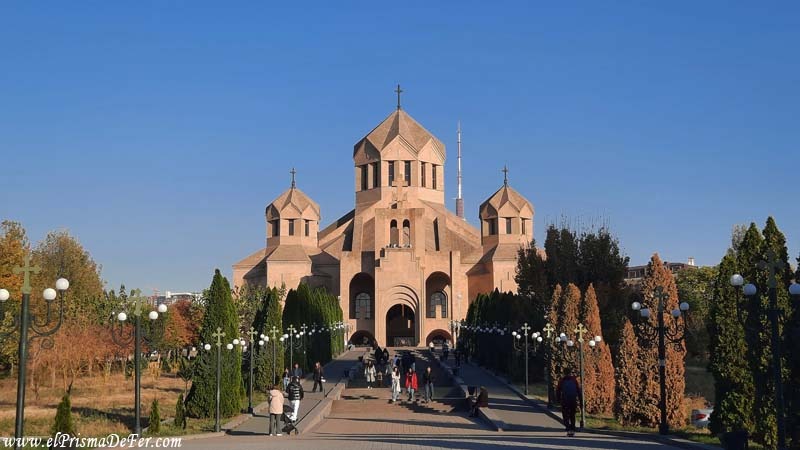
Its imposing and monumental architecture contrasts with other older and more traditional churches we can see in Armenia.
The interior is spacious and bright, with a sober yet majestic style. Beyond the religious aspects, a visit to this cathedral offers a striking architectural example within the capital.
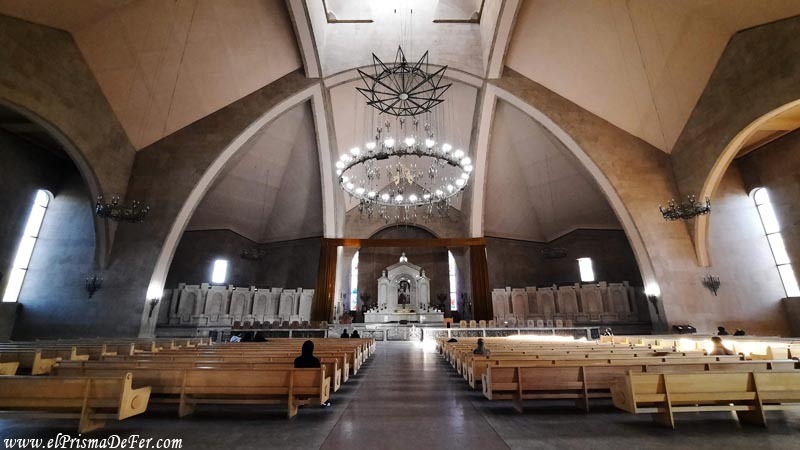
The Mother of Armenia
Located atop Victory Park, Mother of Armenia is a monumental statue that represents the strength and resilience of the Armenian people. From there, you can enjoy excellent panoramic views of the city and, on clear days, Mount Ararat on the horizon.
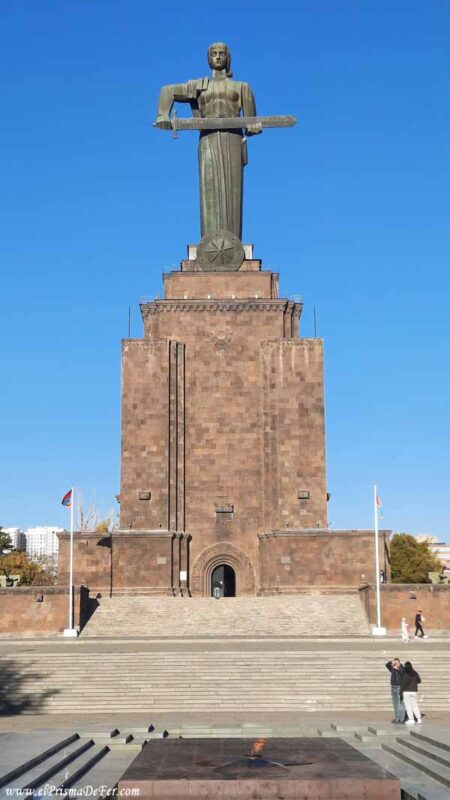
At first glance, it looks very similar to the Mother of Georgia statue in Tbilisi. Both symbolize strength and protection, but the Mother of Armenia emphasizes national defense against the history of invasions and the memory of genocide, while the Mother of Georgia combines strength with hospitality, reflecting Georgian culture.
The visit is doubly interesting because, at the base of the statue, there is a small free military museum, where you can see uniforms, weapons and objects related to the wars that marked Armenia's recent history.
The Blue Mosque
Although Armenia is a predominantly Christian country, Yerevan is home to the Blue Mosque, built in the 18th century. It's an oasis of calm amidst the bustle of the city, with an interior courtyard filled with gardens and flowers.
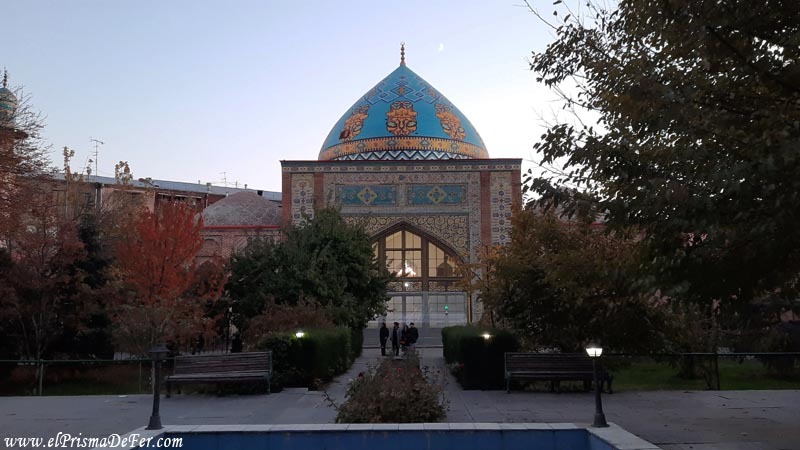
Although not as imposing as other mosques in the Islamic world, its architecture and tranquility make it a distinct place within the city.
Northern Boulevard
Northern Avenue is one of the most modern arteries in Yerevan. This pedestrian boulevard connects Republic Square with the Opera House, and its sidewalks are lined with international brand stores, cafes, and restaurants.
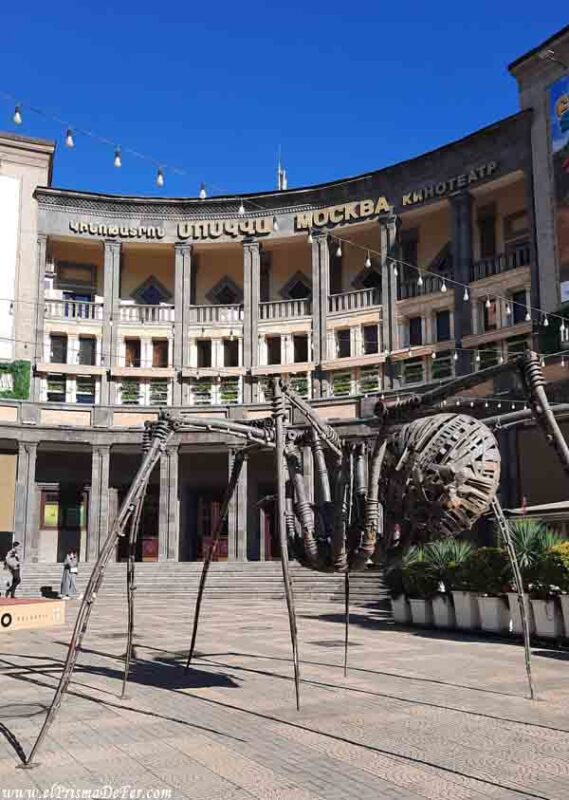
It's the most cosmopolitan side of the city, with a much more European aesthetic than the rest of the capital. Walking there at sunset is very pleasant, and street musicians and artists often liven things up.
What to see near Yerevan: day trips
While Yerevan has much to offer, its surrounding areas also hold treasures worth a visit. Some day trips you can't miss include:
Khor Virap
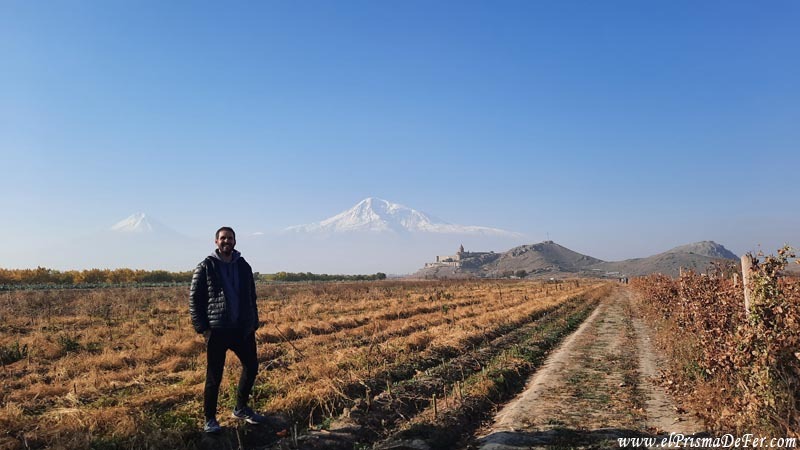
Khor Virap is one of Armenia's most iconic sites, famous for its proximity to Mount Ararat and the story of the imprisonment of St. Gregory the Illuminator.
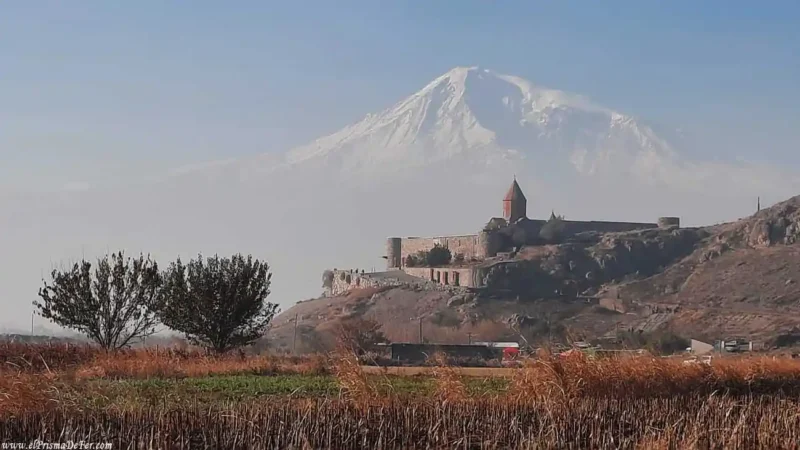
Khor Virap: How to get there from Yerevan, history, and the best view of Mount Ararat (coming soon)
The small but very photogenic monastery is located in a stunning valley, with the mountain in the background. It can be visited independently or on a half-day tour that often also includes a wine tasting stop.
It's a site that combines history and spectacular landscapes, ideal for those seeking panoramic photos and direct contact with Armenian tradition.
Geghard, the Temple of Garni and the Symphonic Stones
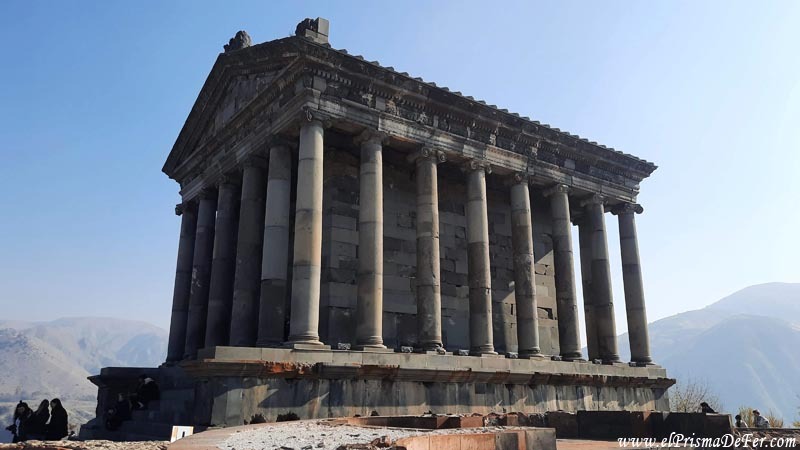
Geghard is a rock-hewn monastery and a World Heritage Site, while Garni is a well-preserved Hellenistic pagan temple. Both sites can be visited together on a day trip.
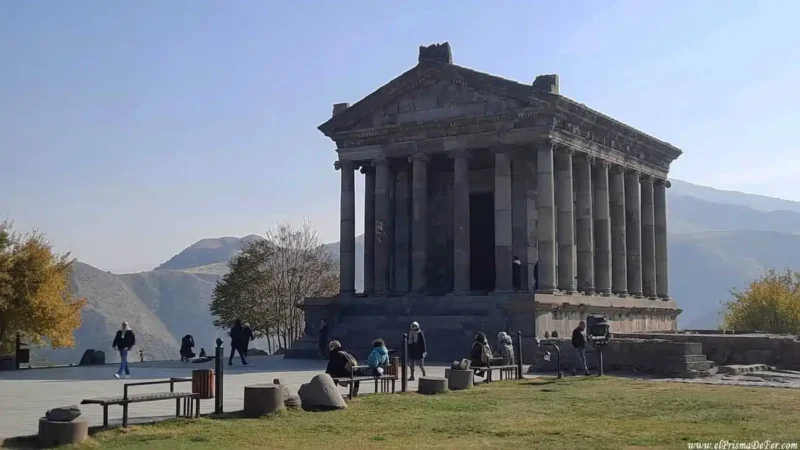
How to visit Geghard Monastery, Garni Temple, and the Symphony Stones in one day from Yerevan (coming soon)
In addition, the area is home to the Symphonic Stones, large blocks of rock that, when struck, emit resonant sounds as if they were “singing.”
Echmiadzin Cathedral
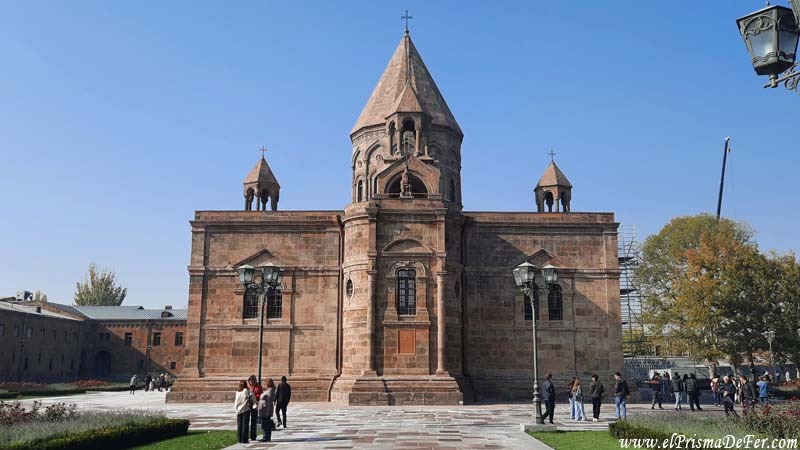
The Echmiadzin Cathedral, the seat of the Armenian Apostolic Church, is a site of great religious and historical significance.
Its architecture and surrounding gardens make for a peaceful and contemplative visit, ideal for those seeking to discover the country's spiritual side. It can also be visited independently or on a half-day tour.
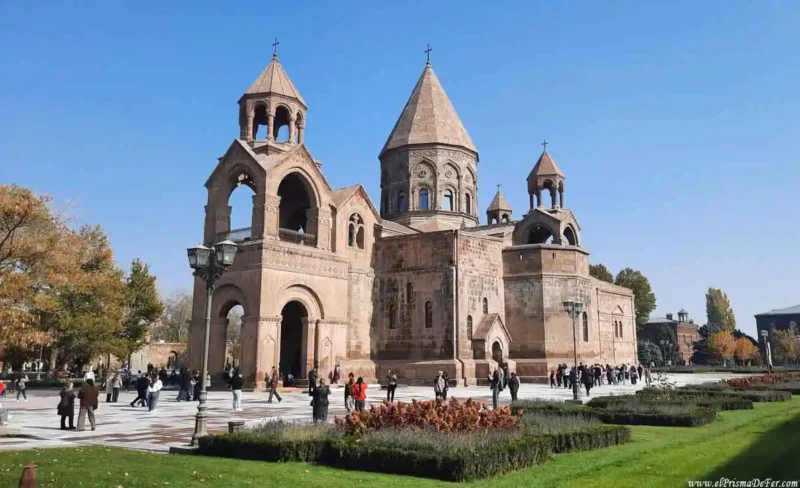
Visit Echmiadzin Cathedral and Zvartnots Temple from Yerevan (coming soon)
Lake Sevan
Although I wasn't able to go, Lake Sevan is another popular getaway from Yerevan. It's a large lake with deep blue waters, surrounded by mountains. You can also visit the Sevanavank Monastery, on a hill with panoramic views of the lake.
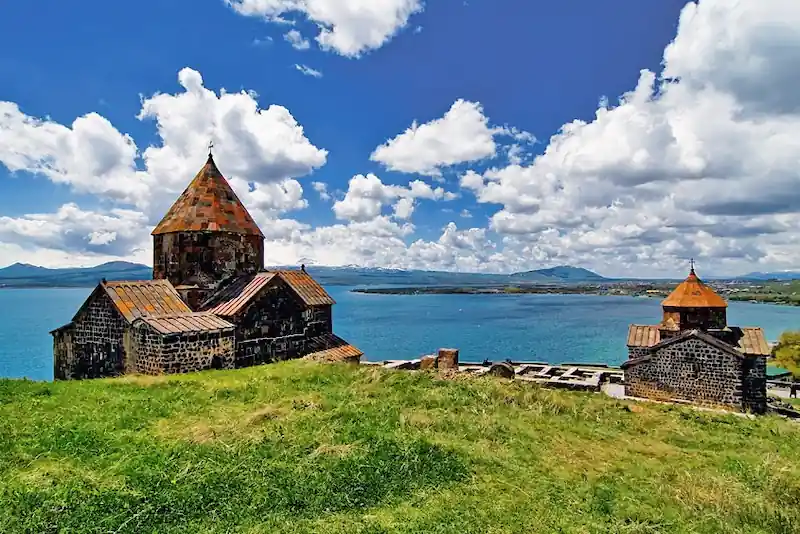
How to go
From Yerevan, Lake Sevan can be reached by minibuses departing from Nor Nork Station or from the city center, with a journey time of approximately 1 hour and 30 minutes. It is also possible to book a private tour or take a taxi, which allows for greater flexibility and includes stops at viewpoints along the way.
Southern Monasteries: Noravank and Tatev
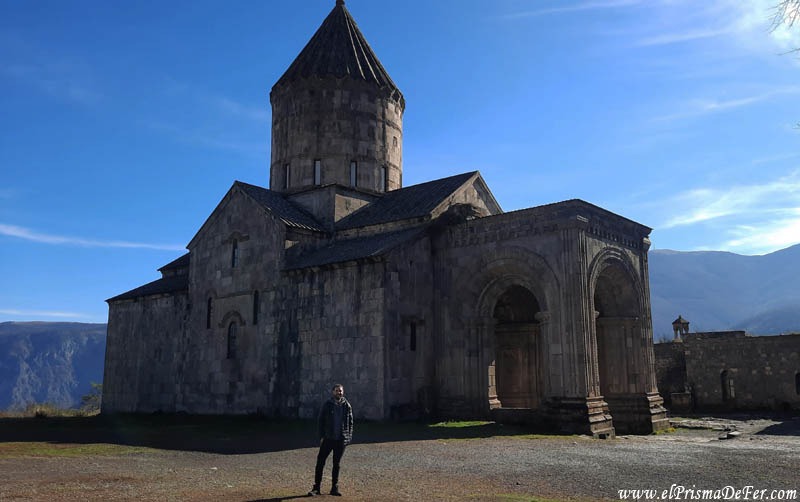
Noravank and Tatev are two of the most spectacular monasteries in Armenia, surrounded by canyons and rocky landscapes.
Both offer stunning views. Tatev, in particular, is famous for the Wings of Tatev cable car, the longest of its kind in the world, which provides a different flavor.
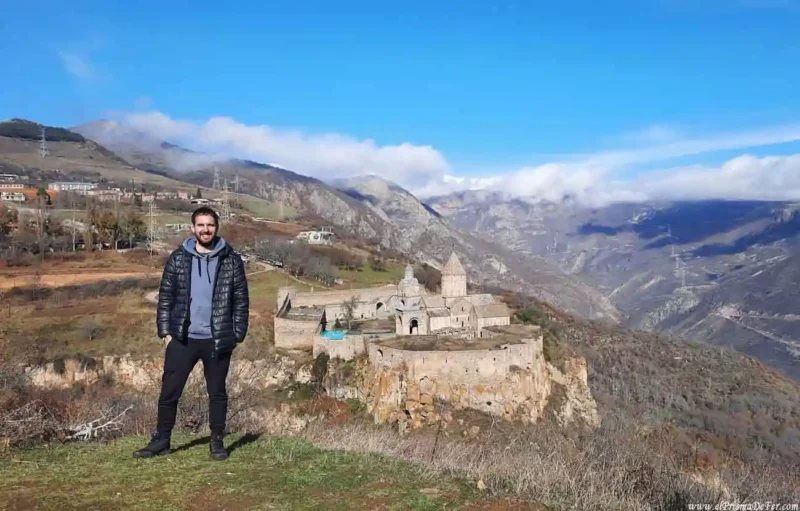
Goris, Armenia's tiny Cappadocia, and the epic Tatev Monastery (coming soon)
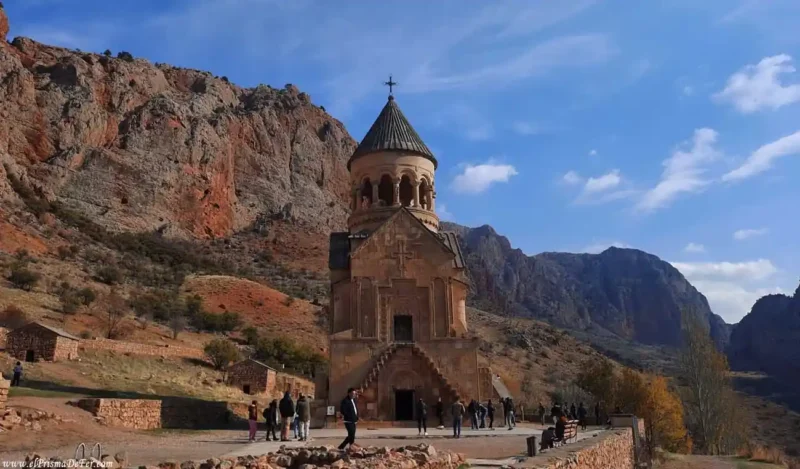
How to visit Noravank Monastery in Armenia (coming soon)
Activities organized from Yerevan

How to get around Yerevan
Getting around Yerevan isn't difficult at all, especially if you stay near the historical center, as many of the main attractions are within walking distance. Walking is easy, allowing you to enjoy the city's pink architecture and discover cafes, markets, and little corners along the way.
Yerevan also has a small but useful metro system, with modern and clean stations. It only has one main line that runs north-south, but it can be useful for avoiding rush-hour traffic.
For longer distances, the city has buses, minibuses (marshrutkas), and taxis. Marshrutkas are very cheap, but they can sometimes be crowded and don't always have fixed schedules.
Taxis are another cheap and convenient option; nowadays, it's common to use transportation apps like Yandex Go to avoid haggling, something that still happens in Yerevan if you hail a taxi on the street.
Where to eat in Yerevan
One of the things I liked most about Yerevan was how easy it is to eat well and cheaply. Buffet-style restaurants are very common in the city, where you can serve yourself whatever you want from a wide variety of dishes and then pay accordingly.
My favorite place was Art Lunch. The food was good quality, had generous portions, and had a varied menu that allowed me to try several local dishes in one meal. It's a very convenient option for travelers looking to eat without overcomplicating things.

Another interesting option is the SAS Food chain, which is a food court. They offer a bit of everything, from Armenian options to more international dishes, always at a good price. It's very useful if you're exploring the city center and want something quick before continuing your sightseeing.
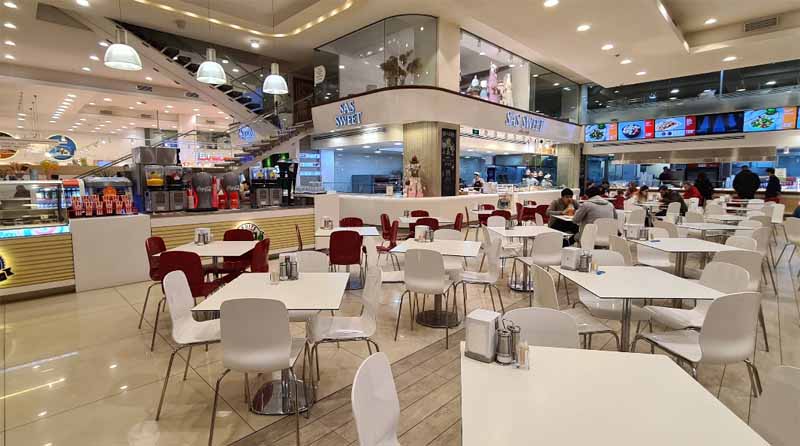
Beyond these practical options, Yerevan also offers plenty of modern cafes, bars, and restaurants with terraces where you can enjoy a more relaxed atmosphere.
Where to sleep in Yerevan
Yerevan is a large city, and although public transportation is cheap, it's most convenient to stay near the historic center. From there, you can walk to most of the main attractions, such as Republic Square, the Cascade, and the Armenian Genocide Museum, without having to waste time commuting.
In my case, I stayed in two different places. First, I tried the Hostel N1, which was very affordable but the rooms were quite small and not very comfortable, although it has more of a backpacker vibe than the next one I'll tell you about.
I later moved to Hotel Styopa, where the experience was better. It had spacious private rooms and a well-equipped kitchen for preparing meals, which is appreciated for longer stays. However, it doesn't have much of a social atmosphere, so I wouldn't choose it if you're planning on meeting people during your trip.
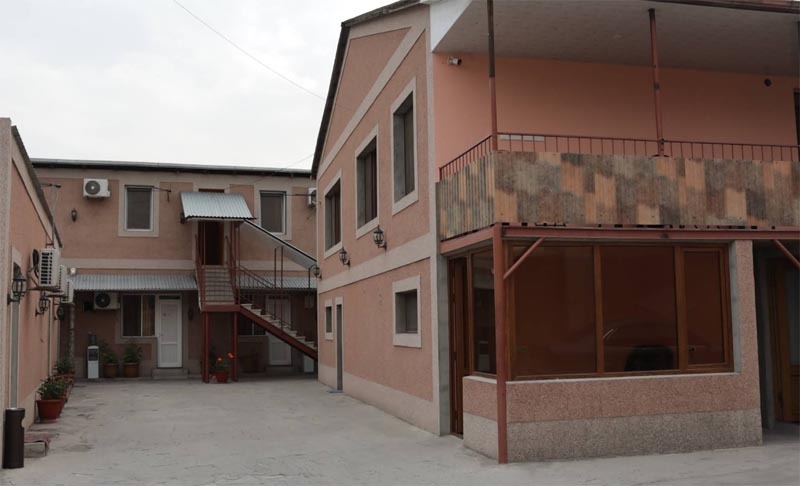
Thoughts on Yerevan
I really liked Yerevan. The city has such unique architecture that blends Soviet and traditional Armenian elements, and an urban lifestyle that feels comfortable to walk around and explore on foot.
But, without a doubt, what I remember most from my time in the capital of Armenia was the constant presence of Mount Ararat. From any point in the city, seeing it rise on the horizon is almost surreal. It looks like a Photoshop background, unreal because it's so imposing. Even though I saw it through some haze, it remains a colossal beast that dominates Armenia's geography and identity.
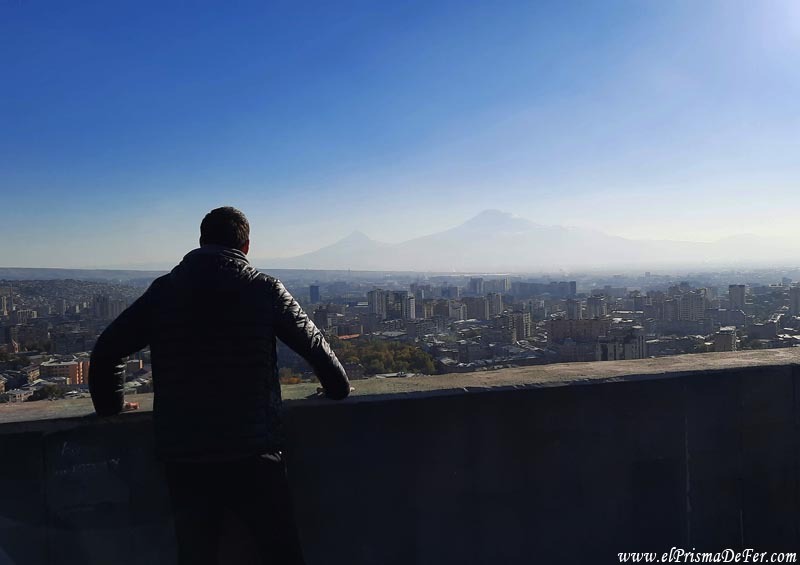
Although Tbilisi is my favorite among the Caucasus capitals, Yerevan is still a very interesting place to visit, proving that Armenia has a unique personality and charm, combining history, modernity, and landscapes that will remain etched in your memory.
Support The Prism of Fer!
Your support helps me continue creating free content on the blog. Thank you so much!


